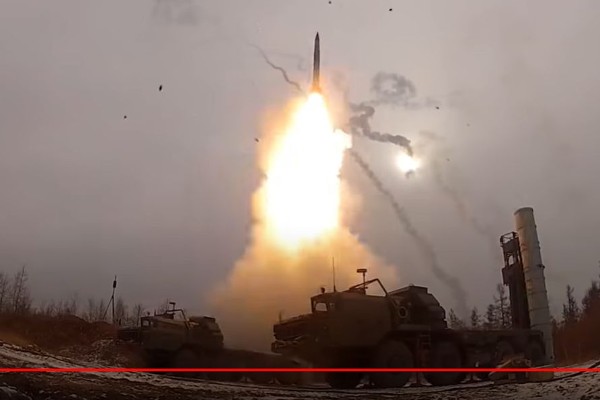Russian S-300 missiles in Syria were never fired at Israeli jets during airstrikes, until this year.
By Pesach Benson, United with Israel
Israeli Defense Minister confirmed on Tuesday a Hebrew media report that Russian forces had fired an advanced air-defense at Israeli Air Force (IAF) jets during a Syrian airstrike in May.
One week after the airstrike, Channel 13 reported that Russia fired S-300 missiles at IAF craft after they struck targets in northwestern Syria near the town of Masyaf.
According to the report, the Israeli jets were already leaving the area and the S-300 failed to lock onto the targeted aircraft.
At a conference on Tuesday hosted by Channel 13, Gantz confirmed the report after being asked about it by reporter Alon Ben David, who broke the original story.
“It was a one-off incident,” Gantz said. “Our jets weren’t even in the area.”
Gantz went on to describe Israel’s coordination with Russia over Syria as “a situation that is stable right now, I think.”
He then added, “But we are always reviewing this story as if we only just began it now.”
Over the last decade, Israel has carried out hundreds of airstrikes in Syria against Iran and its proxies. Israel and Russia have security coordination to avoid firing on each other, but that arrangement has been strained by the war in Ukraine.
Russia initiated the deployment of its advanced S-300 in September 2018 after an S-200 manned by Syrian personnel shot down a Russian military plane carrying 15 people. Moscow accused the Israeli Air Force of using the military plane as a shield against the Syrian defenses.
The S-300 has a range of around 200 km (124 miles), which puts Ben Gurion Airport, the Palmachim Air Base and space launch site, and other smaller airfields in reach.
But despite the upgrade, which media reports described as a “game changer,” the S-300 was never fired at IAF jets, until now.
According to various Mideast reports, the batteries remain under the control of Russian advisers who refuse to let the Syrians fire at the Israelis. It’s also speculated that the Russians fear exposing the S-300’s technological inferiority by firing and failing to down any aircraft.
If the Russians are firing at Israel or allowing Syrians to do so, that would be a change in the rules that Jerusalem will have to deal with.
Gantz’s confirmation also comes against the backdrop of tensions over the Kremlin’s moves to shut down Jewish Agency operations in Russia.
The Jewish Agency is a non-governmental agency that works closely with the Israeli government to facilitate aliyah, a Hebrew expression for immigration that references the biblical mandate to live in to Israel.
Moscow claims the Jewish Agency violated privacy laws. Israeli officials say the Russians are cracking down in response to Israel’s support for Ukraine.
Israel lost one aircraft to Syrian fire in February 2018, before the S-300s were deployed. During a border skirmish in which an Iranian drone was intercepted in Israeli skies, a Syrian-operated S-200 surface to air missile shot down an F-16I flying on the Israeli side of the border.
It was the first downing of an Israeli aircraft by hostile fire since 1982. An IDF investigation found that the crew failed to take proper evasive maneuvers.
